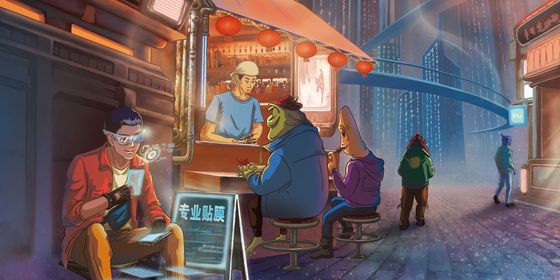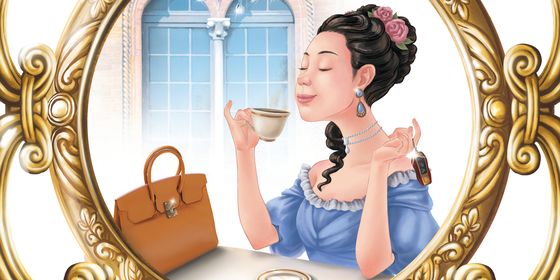Overbearing men are a class of Chinese slang of their own
From princes and generals to CEOs, the alpha male has been a popular archetype in Chinese film and TV for the last decade. Known as the “bossy boss” (霸道总裁, bàdào zǒngcái ), they are portrayed as ideal partners for the female lead, being rich, cool, and handsome, as well as loving and protective, albeit in a slightly controlling way.
There’s a fine line, though, between assertive leadership and being a control freak. After starring in the romantic comedy Go Go Squid! (《亲爱的,热爱的》) last July, 28-year-old actor Li Xian became the bossy boss du jour, with 20 million fans on social media platform Weibo, including many who refer to him as their “boyfriend.” But during the same month, when 42-year-old actor Huang Xiaoming tried to put on a similar persona in the reality show The Chinese Restaurant (《中餐厅》), viewers diagnosed him with “middle-aged prince syndrome” (中年王子病, zhōngnián wángzǐ bìng), a coinage created for overbearing, spoiled, and self-centered men who ought to be old enough to know better.
Huang’s infamous remarks on the show—such as “I want what I think, not what you think (我不要你觉得,我要我觉得, wǒ búyào nǐ juéde, wǒ yào wǒ jué de),” “I’m in charge (都听我的, dōu tīng wǒ de),” and “That’s your problem (这是你的问题, zhè shì nǐ de wèntí)”—have been so widely mocked that they are dubbed mingxue (明学, “Mingology”), or “the study of Huang Xiaoming.” Accordingly, unpopular “bossy bosses” in modern media are referred to as “Mingology experts.”
These terms have cropped up in film and TV reviews. One internet comment on the Japanese drama Grand Maison Tokyo goes, “男主角是明学专家啊,整天说‘听我的,这事不用商量’ ( Nánzhǔjué shì Míngxué zhuānjiā a, zhěngtiān shuō ‘tīng wǒ de, zhè shì búyòng shāngliang. ’ The male lead is such a Mingology expert, always saying ‘Listen to me, there’s no need for discussion’).”
The Beijing News suggests that Huang’s archetype triggers strong emotions because many viewers have encountered similar personalities among their family members, employers, and acquaintances. The phrase 咱也不知道,咱也不敢问 ( Zán yě bù zhīdào, zán yě bùgǎn wèn, Don’t know and don’t dare to ask) has developed as a subtle critique of the tyrants one sees on TV or in real life.
Originating from a comment on short video app Douyin in early 2019, the phrase can express one’s confusion or powerlessness in any situation. For instance, “I don’t know why the boss scheduled a teleconference at 10:30 p.m., and don’t dare to ask. (咱也不知道为什么老板要晚上十点半开电话会议,咱也不敢问。Zán yě bù zhīdào wèi shénme lǎobǎn yào wǎnshang shí diǎn bàn kāi diànhuà huìyì, zán yě bùgǎn wèn. )” It can also be used in a tongue-in-cheek way, such as when complaining about today’s inflated pork prices: “I don’t know why pork has gotten so expensive, and am too afraid to ask.” (咱也不知道为什么猪肉这么贵,咱也不敢问。Zán yě bù zhīdào wèi shénme zhūròu zhème guì, zán yě bùgǎn wèn.)
Huang, though, is taking it all in stride. When asked for his opinion about his “middle-aged prince syndrome” in an interview last August, he replied, “It’s a good thing. It proves I’m not ‘greasy’ [a slang term for sloppy, impotent middle-aged men].” In other words, if you can’t beat them, lead them.
Talking to Tyrants is a story from our issue, “Alpine Ambitions.” To read the entire issue, become a subscriber and receive the full magazine.












